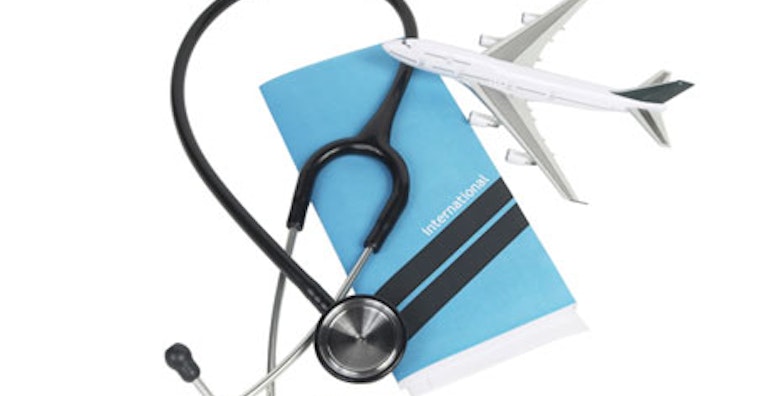CDC Advisory: Going Abroad for Medical Care
“Medical tourism” refers to traveling to another country for medical care. It’s estimated that thousands of US residents travel abroad for care each year.
Many factors influence the decision to seek medical care overseas. Some people travel for care because treatment is cheaper in another country. Other medical tourists may be immigrants to the United States who prefer to return to their home country for health care. Still others may travel to receive a procedure or therapy not available in the United States. The most common procedures that people undergo on medical tourism trips include cosmetic surgery, dentistry, and heart surgery.
Risks of Medical Tourism
The specific risks of medical tourism depend on the area being visited and the procedures performed, but some general issues have been identified:
- Communication may be a problem. Receiving care at a facility where you do not speak the language fluently might increase the chance that misunderstandings will arise about your care.
- Medication may be counterfeit or of poor quality in some countries.
- Antibiotic resistance is a global problem, and resistant bacteria may be more common in other countries than in the United States.
- Flying after surgery can increase the risk for blood clots.
What You Can Do
- If you are planning to travel to another country for medical care, see a travel medicine practitioner at least 4–6 weeks before the trip to discuss general information for healthy travel and specific risks related to the procedure and travel before and after the procedure.
- Make sure that any current medical conditions you have are well controlled, and that your regular health care provider knows about your plans for travel and medical care overseas.
- Check the qualifications of the health care providers who will be doing the procedure and the credentials of the facility where the procedure will be done. Remember that foreign standards for health care providers and facilities may be different from those of the United States. Accrediting groups, including Joint Commission International, DNV International Accreditation for Hospitals, and the International Society for Quality in Healthcare, have lists of standards that facilities need to meet to be accredited.
- Make sure that you have a written agreement with the health care facility or the group arranging the trip, defining what treatments, supplies, and care are covered by the costs of the trip.
- If you go to a country where you do not speak the language, determine ahead of time how you will communicate with your doctor and other people who are caring for you.
- Take with you copies of your medical records that include the lab and other studies done related to the condition for which you are obtaining care and any allergies you may have.
- Bring copies of all your prescriptions and a list of all the medicines you take, including their brand names, generic names, manufacturers, and dosages.
- Arrange for follow-up care with your local health care provider before you leave.
- Before planning vacation activities, such as sunbathing, drinking alcohol, swimming, or taking long tours, find out if those activities are permitted after surgery.
- Get copies of all your medical records before you return home.
Guidance from Professional Organizations
- American Medical Association Guidelines on Medical Tourism
- Organization for Safety, Asepsis, & Prevention’s Traveler’s Guide to Safe Dental Care
- The International Society of Aesthetic Plastic Surgery guidelines for travelers
- American Society of Plastic Surgeons medical tourism white paper
- CDC Yellow Book 2016 information on medical tourism
Source: https://www.cdc.gov/features/medicaltourism/index.html
Share this on Social media
HEALTH DISCLAIMER
This blog provides general information and discussions about health and related subjects. The information and other content provided in this blog, or in any linked materials, are not intended and should not be construed as medical advice, nor is the information a substitute for professional medical expertise or treatment.
The content is for information purpose only and is not a medical advice. Qualified doctors have gathered information from reputable sources; however Credence Medicure Corporation is not responsible for errors or omissions in reporting or explanations. No individual should use the information, resources and tools contained herein to self diagnose or self treat any medical condition.
If you or any other person has a medical concern, you should consult with your health care provider or seek other professional medical treatment. Never disregard professional medical advice or delay in seeking it because of something that have read on this blog or in any linked materials. If you think you may have a medical emergency, call your doctor or emergency services immediately.
The opinions and views expressed on this blog and website have no relation to those of any academic, hospital, health practice or other institution.
Credence Medicure Corporation gives no assurance or warranty regarding the accuracy, timeliness or applicability of the content.
comments powered by Disqus

